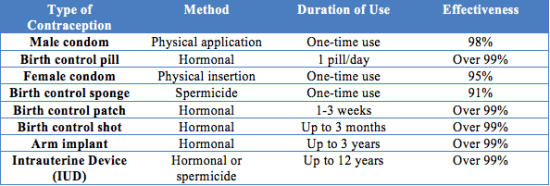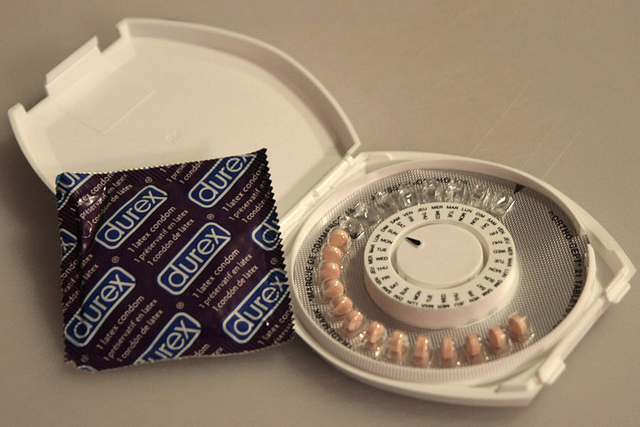When it comes to contraception, the options are practically limitless: gender-specific methods, invasive or non-invasive, medicinal or natural, one-time or extended use, and so on. In fact, there are so many types that couples often lack the proper knowledge to decide which method is right for them.
In general, contraceptive methods typically involve an action taken by one partner to avoid pregnancy. For men, the most common is male condoms. Other lesser-known forms of male contraception can be found here. On the other hand, for women, birth control pills are considered a highly effective form of contraception because they contain hormones that regulate ovulation. If taken as prescribed, less than one percent of women on these pills will become pregnant every year.
Image Source: Peter Ardito
However, for women who do not wish to take daily medication or suffer from the side effects of the pills, several other methods of contraception are available. These include female condoms, sponges, patches, shots, and implants. Female condoms are small pouches that are placed in the vagina before intercourse to catch seminal fluid as a means of preventing both pregnancy and sexually transmitted infections (STIs). In terms of effectiveness, roughly five percent of women who use female condoms correctly will become pregnant in a given year. Like male condoms, female condoms can be purchased without a prescription. Of the other aforementioned options, birth control sponges are the only other over-the-counter contraceptive method. The sponges, made of plastic foam and covered with spermicide to avoid pregnancy, are also inserted into the vagina prior to intercourse.
Birth control patches have the same effect as pills, except that they act externally by releasing hormones through the skin. A single patch, accessible with a prescription, can be used for one to three weeks. Alternatively, a birth control shot of hormones that lasts for up to three months is available via prescription. In terms of more extended forms of contraception, arm implants can prevent pregnancy for up to three years, and if further prevention is desired, intrauterine devices (IUDs) last for as long as 12 years. All of these methods have the same effectiveness as standard birth control pills, but it is important to note that hormonal contraceptives do not prevent STIs.

A comparison of the different types of contraceptives. Source: data retrieved from Planned Parenthood; graphic produced by Zareen Thakor
When considering contraception, always remember to explore all available options and discuss them with your partner; organizations like Planned Parenthood are an excellent resource. The best route for one couple may not necessarily be best for another, but fortunately, there exists a wide variety to choose from.
Feature Image Source: Birth Control by Jenny Lee Silver










